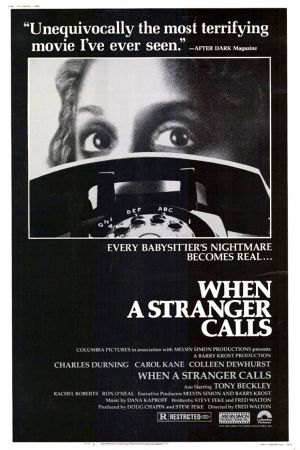Reverse PPC Cannibalization is Rampant among Retailers

The term “PPC Cannibalization” is used to describe the fear that your PPC ads sometimes steal visitors who would have clicked an organic SEO link to your web store. Nobody wants to pay for something they could have gotten for free. While the true effects of such cannibalization are disputed, a less discussed profit killer is on the prowl: the reverse PPC cannibal.
These flesh-eating thieves look innocent enough, yet they are embezzling ROI from your paid search campaigns and placing it into their own coffers. In an ironic twist, your own PPC manager is sometimes responsible for perpetuating the crimes against your business.
Death by Telephone
“Have you checked the children?” This phrase, uttered mysteriously over the telephone in a classic 1979 flick, signified horror. Similarly (actually, not very similarly, but I’m going for drama here), many retailers allow their customer service and sales reps to suck the life from their PPC campaigns with every sales-generating call.
Retailers understandably incentivize phone reps to make sales. The problem is they often treat all phone orders as if they came from free SEO or direct traffic to the site. The PPC campaigns bringing in the most phone orders (perhaps higher-priced items or products involving multiple options) appear to have the lowest ROI when measuring web sales alone. As such, these campaigns are forced into lower bids to bring web ROI back in line due to unattributed sales. Lower bids means lower traffic which means lower sales. Not a happy cycle.
I know what you’re thinking: just implement phone tracking. Frustratingly, many retailers don’t do this because they don’t want to attribute more sales to PPC. Their phone people love the status quo with its full commission on every sale, even though it is in a death spiral due to improper attribution.
A similar situation occurs with live chat. An attribution abomination occurred recently where the live chat reps got more aggressive in initiating conversations with visitors. Good for them! These reps would then complete the sale for the customer and get a small commission on these sales. Unsurprisingly pure PPC-driven sales went down. The PPC manager was called to account for why PPC wasn’t as profitable as it had been. Upper management wouldn’t listen to reason about the live chat cannibalizing PPC sales. The PPC manager was forced to cut spend to make his ROI look better.
In-Store Sales that Never Were
I heard a very sad story the other day. An in-house ecommerce manager for an online retailer with a few hundred brick-and-mortar stores refused to do any local PPC advertising for their physical stores (i.e. the kind of location-based advertising that Google just made amazingly efficient with their new Enhanced Campaigns). Why? Because he was rewarded for web sales, not in-store sales. The chain’s physical stores have no advocate online.
This ecommerce manager is so afraid of in-store sales cannibalizing his PPC efforts that he willingly cripples in-store sales potential.
Such shortsighted strategy is obviously bad for the business as a whole. The ecommerce manager would be a hero if he stopped thinking about his current incentive structure and lobbied for a change that would be best for the retailer’s business as a whole. An employee who thinks multiple steps ahead of their current job title is the one who gets promoted.
No. He Would Never Do Such a Thing…
The last cannibal appears so welcoming and friendly. You invite him to all your parties… indeed, his very name is on the wall whenever you are in public. He is your brand itself. You think so highly of him. He must have advanced pheromones that pull strangers into order form consummation just after yelling out his name. There is no other explanation for all the orders that come your way attributed to “branded”. Unless…
Three words: AdWords Search Funnels. You owe it to your paid search keyword list to see how many of them dated your would-be customers before pointing them to your studly brand to seal the deal.
Accurate attribution solves all of the above. Attribution is hard, but you’ve got too much money on the line to be lazy. Sure, it’s easier to pretend you have clearly defined silos of activity that all lead to the conversion point you choose — but how much success are you siphoning off with this flawed model?
Tagged attribution









